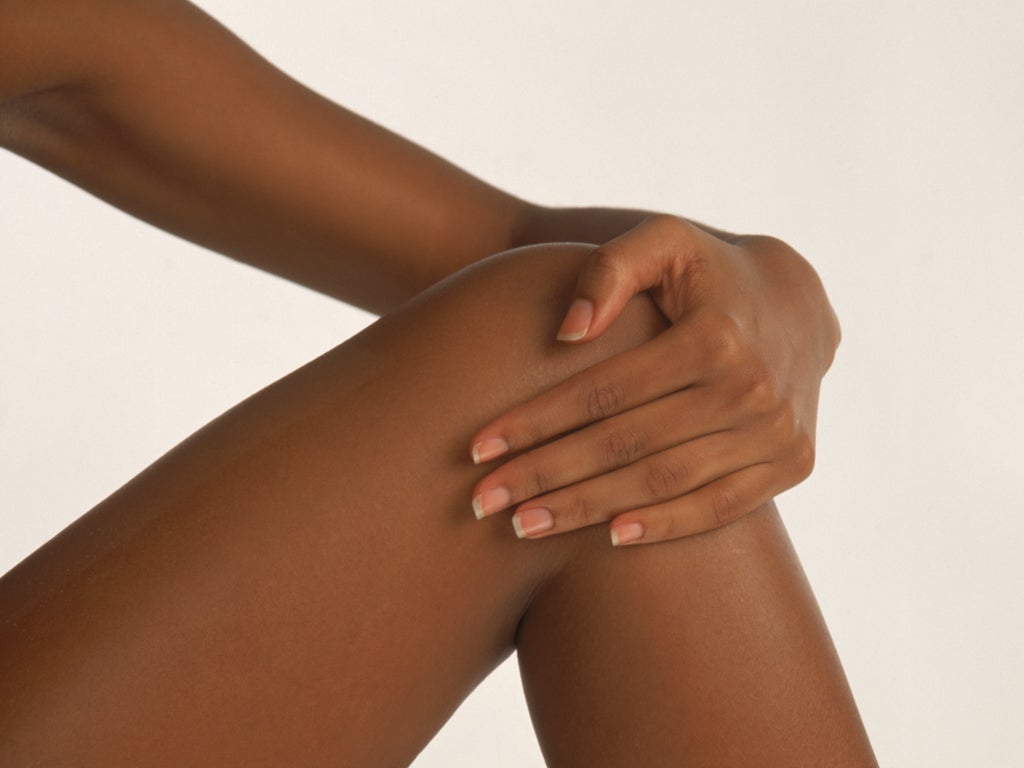Race is part of the body image conversation, so why don't we talk about it?
It’s considered dangerous to reference race for fear of being labelled ‘racist’ - but if we don't discuss it, we can't challenge the accepted beauty ideals


In the wake of the beyond-the-realms-of-ridiculous debacle that was the Reginald D Hunter ‘racism’ incident, Independent columnist Archie Bland suggested that we are often unable to distinguish between something that is ‘racist’ and the discussion of racism itself.
I simultaneously learned a valuable lesson which was : ‘Avoid reading things you agree with so intensely they demand a verbal proclamation, whilst in public’ (you can have that one for free, reader). I heartily slapped my copy of the Indy, bellowing ‘yes!’ at an assortment of startled fellow commuters on a packed train from Paddington.
It has long been the case in Britain that it’s considered potentially dangerous to make any direct reference to race, for fear of being labelled ‘racist’. This has come at the expense of the ability to resolve the racial tensions which bubble under the surface of our polite social veneer. I’ve observed this in my capacity as a body confidence campaigner. Body image and race are inextricably linked and yet if I say anything which recognizes the same I’m met with looks which veer between ‘I can’t believe you said that’ and ‘proceed with caution’.
Often, I’m forced to qualify my opinions with the not-immediately-visually-obvious fact that I’m of what I believe I’m now expected to refer to as ‘mixed ethnic heritage’, lest I be mistaken for the inexplicably much less palatable ‘white girl who wants to make observations about racial issues’. Even then, my views have been censored.
A promotional video I made with one of the world’s most prominent beauty brands cut the part of my presentation where I spoke about the blonde-haired, blue-eyed, über-slender beauty ideals where I grew up in Essex and how my own racial background made it impossible for me to conform to those ideals. I was not given an explanation for this omission.
Last week, I debated with the infamous Samantha Brick on ITV1’s ‘This Morning’ and the fray was subsequently reported in the Daily Mail. My original quote was:
“At Body Gossip we work hard to promote a spectrum of beauty. We believe that there are hundreds of ways to be gorgeous, regardless of your shape, size, age or race”.
In their long-standing tradition of misquoting what I say during television appearances, the Mail changed the word ‘race’ to ‘weight’.
The above incidents demonstrate how our trepidation in addressing racism in any context can spiral into censorship which prevents us from having an honest and informed dialogue.
In reality, there are myriad ways in which race plays in to the body image debate and they largely go unacknowledged. One example that has stuck in my mind dates back to when I was teaching a body confidence class at an East London all-girls’ school, about two years ago. One of my students told me she ‘hated’ her skin. I asked her why.
“Well” she said “you would probably look at me and think I’m mixed race. But I’m not and I wouldn’t want people to think I am”.
It transpired that she had been bullied since starting school for being lighter skinned than the majority of her classmates, ostensibly because of some ill-conceived notion that ‘all mixed race girls are loose’.
In my opinion it’s relatively simple to fathom the logistics of that particular situation. You very rarely see a dark-skinned black woman held up in the mainstream media as an example of aspirational beauty. As a result, this lighter skinned young woman, who happen to more closely conform to our current beauty paradigms, had induced the kind of envy in her peers which they decided only a well-placed rumour could quash.
On the rare occasion we do bestow the kind of aesthetically inspired worship on darker-skinned women that is afforded to their lighter counterparts, it’s always with certain concessions and one of those will almost certainly be that she will have chemically straightened hair.
And that’s before we even acknowledge the biological fact that certain races are genetically prone to certain body shapes.
When I bang on endlessly about the importance of the ‘spectrum of beauty’ (I will do it until the world listens. This I pledge), I’m not just factoring shape and size into the equation. Age and race also play a key role (and invariably have a direct bearing on shape and size, in turn). Until we incorporate a range of ethnicities and skin tones into our common idea of how it’s possible to be beautiful, body image will never be an even playing field.
This isn't an agreeable concept for the body-elitists of this world. They’re much more comfortable with the idea that our outward appearance is something over which we have ultimate control. They believe our bodies can always be moulded by dieting, exercise, beauty products and a will of iron - and therefore any woman who doesn’t approximate our constructed sociological notion of attractiveness must be ‘lazy’. If we acknowledge that a huge chunk of our appearance is determined by our genes and more specifically by our ethnicity, and continue to endlessly criticise women for not looking how we’d ideally wish them to, we start to appear...well...racist.
It is NOT racist to acknowledge that particular ethnicities are more likely to have a particular body type. What IS racist is to silently but powerfully expect women of all cultural backgrounds to conform to Caucasian beauty paradigms.
Let’s talk about that…
Join our commenting forum
Join thought-provoking conversations, follow other Independent readers and see their replies
Comments
Bookmark popover
Removed from bookmarks